Essentials of Money, Banking and Financial Institutions
Essentials of Money, Banking and Financial Institutions
With Applications to the Developing World
Samuel K. Andoh
With
John Kuforiji and Benjamin Abugri
LEXINGTON BOOKS
Lanham Boulder New York London
Contents
Published by Lexington Books
An imprint of The Rowman & Littlefield Publishing Group, Inc.
4501 Forbes Boulevard, Suite 200, Lanham, Maryland 20706
www.rowman.com
16 Carlisle Street, London W1D 3BT, United Kingdom
Copyright 2014 by Lexington Books
All rights reserved . No part of this book may be reproduced in any form or by any electronic or mechanical means, including information storage and retrieval systems, without written permission from the publisher, except by a reviewer who may quote passages in a review.
British Library Cataloguing in Publication Information Available
Library of Congress Cataloging-in-Publication Data
Andoh, Samuel K. (Samuel Kojo), 1952- author.
Essentials of money, banking and financial institutions : with applications to the developing world / Samuel K. Andoh.
pages cm
Includes bibliographical references and index.
ISBN 978-0-7391-8953-5 (cloth : alk. paper)ISBN 978-0-7391-8954-2 (electronic) 1. Money marketDeveloping countries. 2. Banks and bankingDeveloping countries. 3. Economic developmentFinanceDeveloping countries. I. Title.
HG1496.A54 2014
332.091724dc23
2014023712
 The paper used in this publication meets the minimum requirements of American National Standard for Information SciencesPermanence of Paper for Printed Library Materials, ANSI/NISO Z39.48-1992.
The paper used in this publication meets the minimum requirements of American National Standard for Information SciencesPermanence of Paper for Printed Library Materials, ANSI/NISO Z39.48-1992.
Printed in the United States of America
In this chapter we give an overview of the financial system; its functions, its importance in the economy, the participants in it, what the financial markets trade and who the regulators are. At the end of the chapter you should be able to:
- Describe the financial system.
- Explain the role of finance in economic development.
- Discuss and explain the special role of money in the financial system.
Money, Banking and Financial Markets
The financial system, which includes banks, financial institutions and non-banking financial institutions, is a very important sector of modern economies. Without the financial system, it is inconceivable that the high standards of living in the Western world could have been attained. It also means that without a good financial system, the underdeveloped countries of the world cannot hope to achieve or duplicate the high standards of living prevailing in the developed countries.
Indeed the importance of the financial system is evidenced in the developed world by the daily and hourly reporting of financial data. Economists sometimes divide their field into two sectors: the real sector and the financial sector. The real sector has markets for real outputs (goods and services). The real side contains markets for inputs and outputs. The input market includes the demand and supply of labor, capital, land/raw materials and entrepreneurship. The output market contains the goods and services produced in the economy. The financial sector contains the markets for financial assets, such as shares, bonds and money. To produce the goods and services, producers need inputs. Unfortunately, sometimes those who are willing and able to produce do not own the inputs, and those who own the inputs are not willing and/or able to produce. When those who have the means to produce are not willing or able to produce, and those who are willing and able to produce do not have the means to do so, society suffers as fewer goods and services are produced. To remedy this situation, there must be a means of connecting the owners of the resources and those who have need of the resources.
Now let us suppose that the owners of the resources agree to give their resources to those who need them to produce, with the promise that after selling what they have produced, they will then compensate the owners of the resources. As soon as these owners agree to let the entrepreneurs use their resources, and pay them afterwards, t he tw o parties have entered into a contractual financial arrangement whose importance is enormous . The owners of the resources have loaned the services of their resources to the entrepreneur; they are creditors . The entrepreneurs have borrowed the services of the resources; they are borrowers . This simple arrangement enables resources to be brought to use, goods and services to be produced, income generated and wealth accumulated.
The scenario described above takes place every day in many countries around the world especially in the less developed countries. In these less developed countries, this process may represent the principal means by which people obtain resources to produce the goods and services. There are many problems associated with this simple arrangement as described:
- What if the entrepreneur having produced the goods and sold them, does not reimburse the resource owner but instead absconds?
- What if the entrepreneur fails because she did not know much about what she was representing to the owner of the resource in the first place?
- How much reimbursement will the owner of the resources receive?
These questions point to the need for some efficient structure to be in place in order for entrepreneurs to have access to the resources necessary to produce goods and services, and to assure the owners of the resources that they will recoup their investment and then some. In the absence of such structures or institutions, owners of resources will not be willing to part with them. Instead, they might hold on to them and attempt to produce all the goods and services they need to consume and eke out a subsistence living. They would rather live in an autarkic world than take the chance of parting with their resources and suffer losses.
In the world we describe above, the owners of the resources will probably not be willing to give up their resources to people they do not know. In a small village of a few hundred people, the villagers will probably all know each other and are likely to know who is trustworthy and who is not. In a big city that may not be the case. Not knowing each other very well means not being able to determine who is trustworthy and who is not. Owners of resources would therefore not want to take chances. The institutions or arrangements which societies put in place to enable entrepreneurs obtain access to the resources to produce goods and services, constitute the essence of the world of finance. The arrangements may be formal or informal, written or verbal; the institutions may be physical or simply abstract. What is important is that through them, and by them, people without resources to produce, are able to obtain the resources and the owners of the resources benefit from allowing others to use them.
The Scope of Book
In money, banking and financial markets, we study the markets, institutions and policies that are established to enable owners of resources to transfer these to those who need them to produce goods and services. Key to understanding how the financial system works is a thorough understanding of the instruments developed to make it possible for creditors and borrowers to interact with each other. In the course of the growth of the financial system, ways have been found to make it possible for the owners of the resources and those who need them to hardly meet in person. Instead, markets have developed, institutions have emerged and products have been developed that make it possible for owners of resources to efficiently transfer those resources to those who need them. The processes, the instruments and the rules and regulations governing how this works are what we study in this book. Although this book is about money, banking and financial institutions we pay special attention to the role played by banks. This is as it should be. Everywhere, banks play a major role in the process of making it possible for those without the resources to get the resources.
Next page
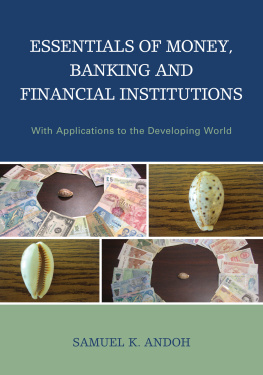

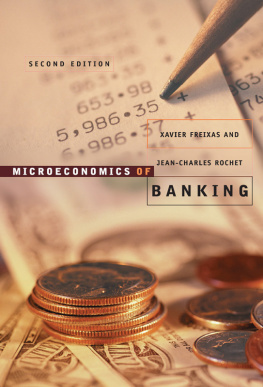


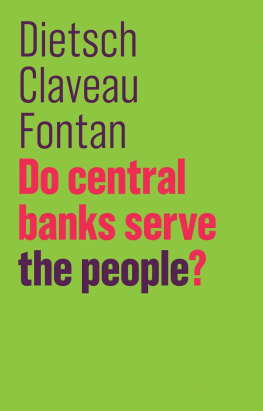
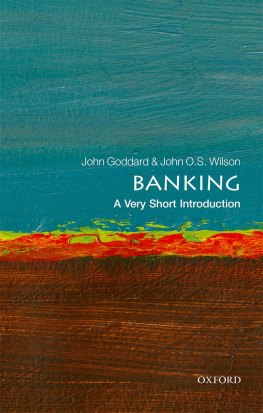
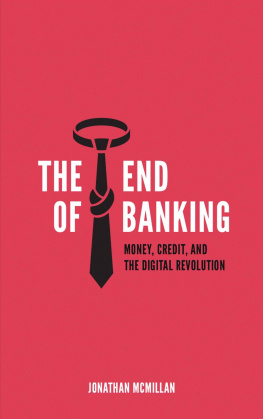
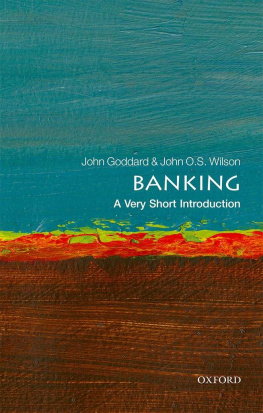
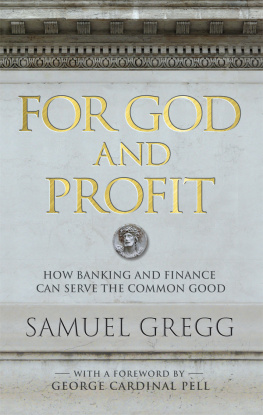

 The paper used in this publication meets the minimum requirements of American National Standard for Information SciencesPermanence of Paper for Printed Library Materials, ANSI/NISO Z39.48-1992.
The paper used in this publication meets the minimum requirements of American National Standard for Information SciencesPermanence of Paper for Printed Library Materials, ANSI/NISO Z39.48-1992.